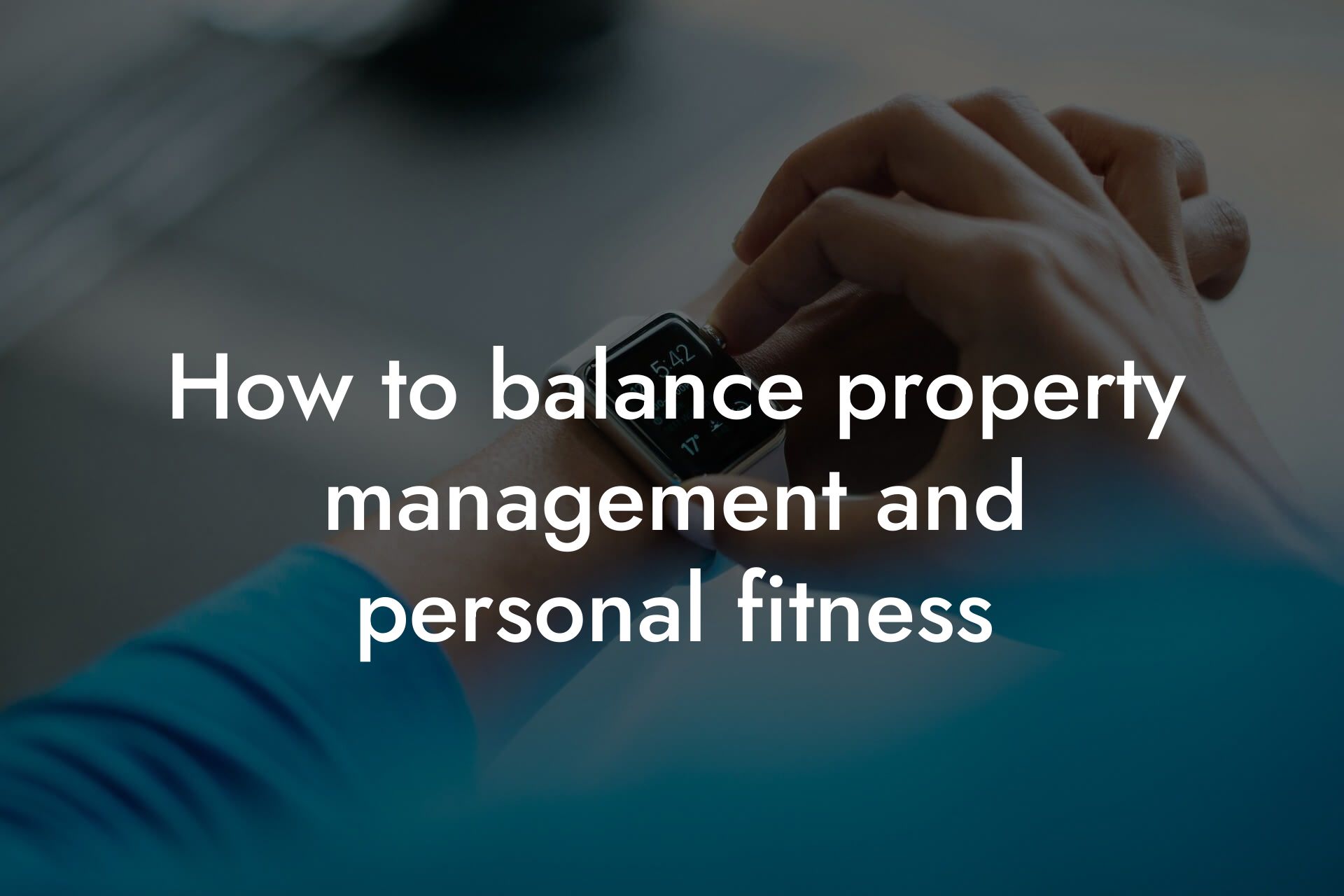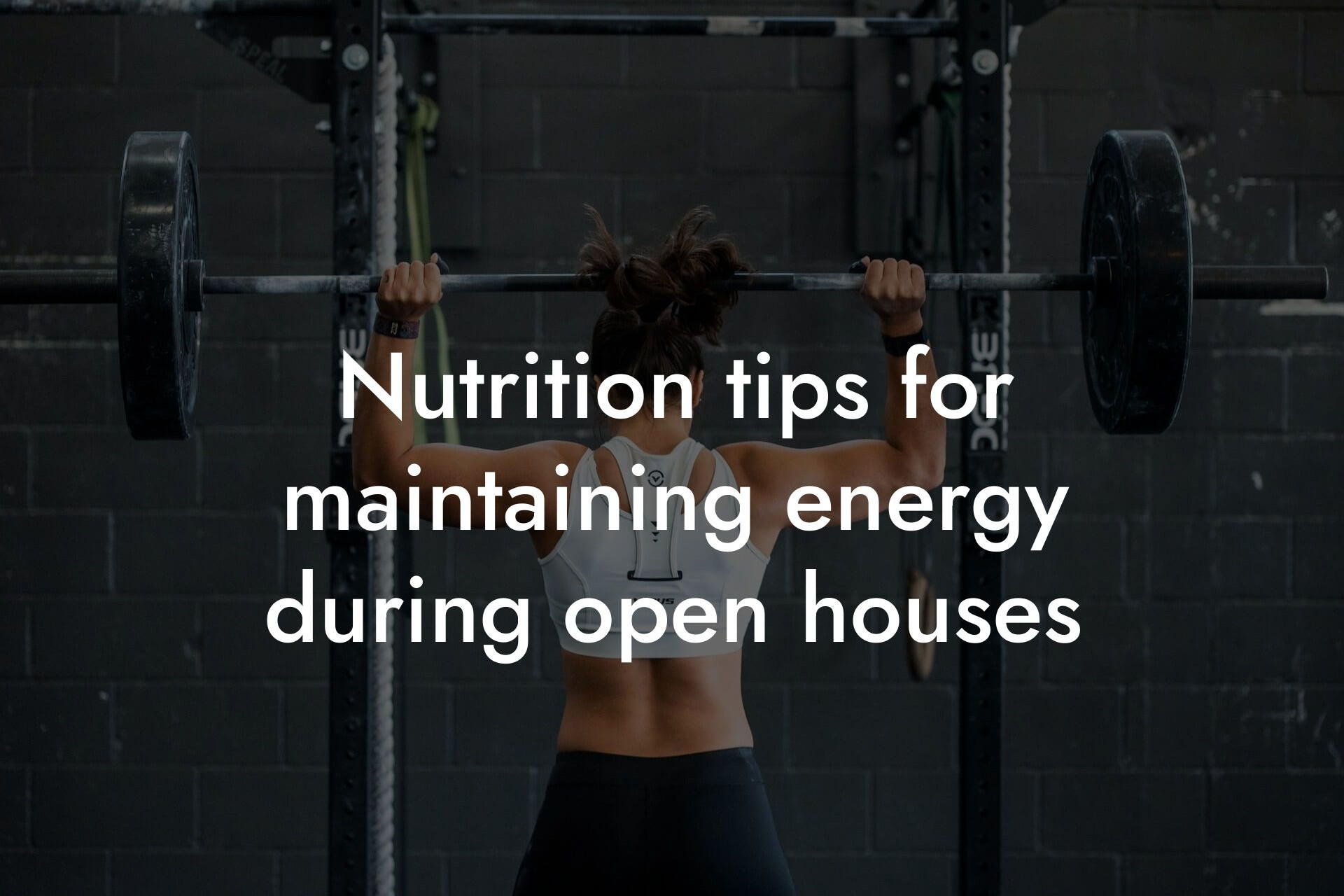As a high-earning professional in the real estate industry, you understand the importance of building strong client relationships. What you may not realize, however, is the significant impact your physical health can have on those relationships. At Tano Performance Group, we believe that taking care of your physical health is essential to taking your business to the next level. In this article, we'll explore the ways in which your physical health affects your client relationships and provide you with the information you need to make positive changes.
Table of Contents
The First Impression is Everything
In real estate, first impressions are crucial. When you meet with clients, they're not just assessing your knowledge of the market or your negotiation skills – they're also judging your appearance and demeanor. If you're not taking care of your physical health, it can show in your appearance, energy levels, and overall confidence. A well-groomed, fit, and healthy appearance can make a significant difference in how clients perceive you and your abilities. On the other hand, being overweight, tired, or struggling with health issues can raise concerns about your reliability and work ethic.
Energy and Productivity
When you're physically healthy, you have the energy and endurance to keep up with the demands of the real estate industry. You're able to show properties, attend open houses, and meet with clients without feeling exhausted. You're more focused, more productive, and better equipped to handle the stresses of the job. On the other hand, poor physical health can lead to fatigue, decreased motivation, and a lack of enthusiasm – all of which can negatively impact your client relationships.
Building Trust and Credibility
When you take care of your physical health, you're demonstrating to your clients that you're responsible, disciplined, and committed to excellence. These are the same qualities that clients look for in a real estate agent – someone who can be trusted to navigate the complex process of buying or selling a home. By prioritizing your physical health, you're building trust and credibility with your clients, which can lead to stronger, more loyal relationships.
Communication and Interpersonal Skills
Good physical health can also improve your communication and interpersonal skills, which are essential for building strong client relationships. When you're physically healthy, you're more likely to be optimistic, patient, and empathetic – all of which are critical for understanding your clients' needs and providing exceptional customer service. You're better equipped to handle conflicts, negotiate deals, and provide guidance and support throughout the real estate process.
Stress Management and Resilience
The real estate industry can be incredibly stressful, with tight deadlines, demanding clients, and high stakes. When you're physically healthy, you're better equipped to manage stress and bounce back from setbacks. You're less likely to get overwhelmed, irritable, or burnt out, which can damage your relationships with clients and colleagues. By prioritizing your physical health, you're building resilience and developing the coping skills you need to thrive in a high-pressure industry.
The Impact of Chronic Health Conditions
Chronic health conditions like diabetes, hypertension, and obesity can have a significant impact on your client relationships. These conditions can affect your energy levels, mood, and overall well-being, making it difficult to provide the level of service your clients expect. They can also impact your availability, reliability, and ability to show up consistently for clients. By taking care of your physical health and managing chronic health conditions, you can minimize the impact on your client relationships and maintain a high level of performance.
Body Composition and Bone Density
At Tano Performance Group, we use DEXA scans to provide a complete body assessment, including body composition and bone density. These metrics are critical for understanding your overall health and identifying areas for improvement. By knowing your body fat percentage, lean mass, and bone density, you can develop a personalized fitness and nutrition plan that addresses your specific needs and goals. This can help you maintain a healthy weight, improve your energy levels, and reduce your risk of chronic health conditions.
Taking Control of Your Physical Health
Taking control of your physical health requires a commitment to making positive lifestyle changes. This can include developing a regular exercise routine, eating a balanced diet, getting enough sleep, and managing stress. It's also important to stay hydrated, limit your intake of processed foods and sugar, and prioritize self-care activities like meditation and yoga. By making these changes, you can improve your physical health, increase your energy levels, and enhance your client relationships.
At Tano Performance Group, we're dedicated to helping high-earning professionals like you achieve their fitness and health goals. Our DEXA scans provide a comprehensive picture of your physical health, and our team of experts can help you develop a personalized plan to improve your body composition, bone density, and overall well-being. By prioritizing your physical health, you can take your business to the next level and build stronger, more meaningful relationships with your clients.
Frequently Asked Questions
How does physical health impact client relationships in real estate?
Physical health plays a significant role in building and maintaining strong client relationships in real estate. When you're physically fit, you exude confidence, energy, and a positive attitude, which are essential qualities for building trust and rapport with clients. On the other hand, poor physical health can lead to fatigue, low self-esteem, and a lack of motivation, ultimately affecting your ability to provide exceptional service to your clients.
What are the key physical health factors that influence client relationships?
Several physical health factors can impact client relationships, including body composition, energy levels, sleep quality, nutrition, and overall physical fitness. These factors can affect your mood, cognitive function, and ability to communicate effectively with clients.
How does body composition affect client relationships?
Carrying excess body fat can lead to low self-esteem, reduced confidence, and a lack of energy, making it challenging to build strong relationships with clients. On the other hand, maintaining a healthy body composition can boost your self-confidence, allowing you to present yourself more effectively and build trust with clients.
What role does energy play in client relationships?
Having sufficient energy is crucial for staying focused, motivated, and engaged with clients. When you're physically fit, you're more likely to have the energy needed to tackle demanding tasks, respond promptly to client inquiries, and provide exceptional service.
How does sleep quality impact client relationships?
Poor sleep quality can lead to fatigue, irritability, and decreased cognitive function, making it challenging to communicate effectively with clients and respond to their needs. Adequate sleep, on the other hand, can help you stay focused, alert, and responsive to client needs.
What is the importance of nutrition in client relationships?
A well-balanced diet provides the necessary fuel for optimal physical and mental performance. When you eat a healthy diet, you're more likely to have the energy, focus, and motivation needed to provide exceptional service to clients and build strong relationships.
How can physical fitness improve client relationships?
Regular exercise can improve your mood, reduce stress, and increase energy levels, making it easier to build strong relationships with clients. Physical fitness can also enhance your cognitive function, allowing you to think more clearly and respond more effectively to client needs.
What are the consequences of neglecting physical health in real estate?
Neglecting physical health can lead to burnout, decreased productivity, and a decline in client relationships. When you're not physically fit, you may struggle to keep up with the demands of the real estate industry, ultimately affecting your reputation and bottom line.
How can real estate professionals prioritize physical health?
Real estate professionals can prioritize physical health by incorporating regular exercise, healthy eating, and sufficient sleep into their daily routine. It's also essential to schedule regular health check-ups and seek support from healthcare professionals when needed.
What are some common physical health challenges faced by real estate professionals?
Real estate professionals often face challenges such as sedentary work habits, long hours, and high levels of stress, which can negatively impact physical health. Additionally, many real estate professionals struggle with maintaining a healthy work-life balance, leading to neglect of their physical health.
How can real estate professionals overcome physical health challenges?
Real estate professionals can overcome physical health challenges by setting realistic goals, seeking support from colleagues and healthcare professionals, and incorporating small changes into their daily routine, such as taking regular breaks to stretch or scheduling time for exercise.
What is the impact of physical health on mental well-being in real estate?
Physical health has a significant impact on mental well-being in real estate. When you're physically fit, you're more likely to experience reduced stress, improved mood, and enhanced cognitive function, all of which are essential for building strong client relationships and achieving success in the real estate industry.
How does physical health affect confidence in real estate?
Physical health can significantly impact confidence in real estate. When you're physically fit, you're more likely to feel confident, assertive, and self-assured, making it easier to build trust with clients and close deals.
What is the relationship between physical health and stress in real estate?
Physical health and stress are closely linked in real estate. When you're physically fit, you're better equipped to manage stress, which is essential for maintaining a healthy work-life balance and providing exceptional service to clients.
How can real estate professionals reduce stress through physical health?
Real estate professionals can reduce stress through physical health by incorporating stress-reducing activities, such as yoga or meditation, into their daily routine. Regular exercise, healthy eating, and sufficient sleep can also help mitigate the negative effects of stress.
What are the benefits of prioritizing physical health in real estate?
Prioritizing physical health in real estate can lead to increased energy, improved mood, enhanced cognitive function, and better overall health. Additionally, physical fitness can improve confidence, reduce stress, and enhance client relationships, ultimately leading to increased success and profitability.
How can Tano Performance Group support real estate professionals in achieving their physical health goals?
Tano Performance Group offers a range of resources and tools to support real estate professionals in achieving their physical health goals, including personalized coaching, nutrition planning, and fitness training. Our team of experts is dedicated to helping high-earning professionals like you achieve optimal physical health and performance.
What sets Tano Performance Group apart from other health and wellness programs?
Tano Performance Group is specifically designed for high-earning professionals, taking into account the unique demands and challenges of your profession. Our program is tailored to help you achieve optimal physical health and performance, while also supporting your busy lifestyle and career goals.
How can real estate professionals get started with Tano Performance Group?
Real estate professionals can get started with Tano Performance Group by scheduling a consultation with one of our experts. We'll work with you to create a personalized plan tailored to your unique needs and goals, helping you achieve optimal physical health and performance.
What kind of support does Tano Performance Group offer to real estate professionals?
Tano Performance Group offers ongoing support and guidance to real estate professionals, including regular check-ins, personalized coaching, and access to our team of experts. We're committed to helping you achieve your physical health goals and maintain a healthy work-life balance.
How can physical health impact business outcomes in real estate?
Physical health can significantly impact business outcomes in real estate. When you're physically fit, you're more likely to have the energy, motivation, and focus needed to close deals, build strong relationships, and achieve success in the industry.
What is the long-term impact of neglecting physical health in real estate?
Neglecting physical health in real estate can lead to long-term consequences, including chronic health conditions, decreased productivity, and a decline in business outcomes. It's essential to prioritize physical health to maintain a healthy, successful, and sustainable career in real estate.
How can real estate professionals make physical health a priority in their busy schedules?
Real estate professionals can make physical health a priority by scheduling time for exercise, healthy eating, and self-care into their daily routine. It's also essential to set realistic goals, seek support from colleagues and healthcare professionals, and prioritize rest and recovery.
Here are some related articles you might love...
- Quick workouts for real estate agents on the go
- How to balance property management and personal fitness
- Nutrition tips for maintaining energy during open houses
- The role of physical fitness in real estate sales success
- How to manage stress and maintain fitness in real estate
- How real estate agents can stay active during property showings
- Staying fit while managing multiple properties
- The benefits of DEXA scans for real estate professionals
- Maintaining a professional appearance in the real estate industry
Zak Faulkner
Zak Faulkner is a leading authority in the realm of physical health and body composition analysis, with over 15 years of experience helping professionals optimise their fitness and well-being. As one the experts behind Tano Performance Group, Zak has dedicated his career to providing in-depth, science-backed insights that empower clients to elevate their physical performance and overall health.
With extensive knowledge of DEXA technology, Zak specializes in delivering comprehensive body assessments that offer precise data on body fat, muscle mass, bone density, and overall physique. His expertise enables individuals to make informed decisions and achieve their fitness goals with accuracy and confidence. Zak’s approach is rooted in a deep understanding of human physiology, combined with a passion for helping clients unlock their full potential through personalised strategies.
Over the years, Zak has earned a reputation for his commitment to excellence, precision, and client-focused service. His guidance is trusted by top professionals who demand the best when it comes to their health. Whether advising on fitness programs, nutritional strategies, or long-term wellness plans, Zak Faulkner’s insights are a valuable resource for anyone serious about taking their health and fitness to the next level.
At Tano Performance Group, Zak continues to lead our Content Team revolutionising how professionals approach their physical health, offering unparalleled expertise that drives real results.




